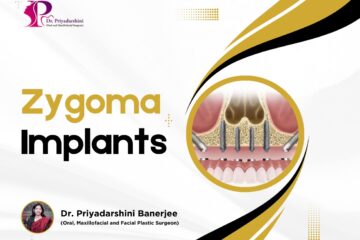Dental Implants vs. Dentures: Which Option is Best for You?
When it comes to replacing missing teeth, two popular options are dental implants and dentures. Both can help restore your smile and improve your quality of life, but they have different features and benefits. In this blog, we’ll break down the key differences to help you determine which option might be best for you.
What Are Dental Implants?
Dental implants are artificial tooth roots made of titanium that are surgically placed into your jawbone. After a healing period, a crown (the visible part of the tooth) is attached to the implant. Implants are designed to look, feel, and function like natural teeth, offering a permanent solution for tooth loss.
What Are Dentures?
Dentures are removable appliances that replace missing teeth. They can be complete (replacing all teeth) or partial (replacing some teeth). Dentures rest on your gums and are usually made from acrylic resin, sometimes with metal components for added stability. While they’re less invasive than implants, they do require regular adjustments and care.
Pros of Dental Implants
- Permanent Solution: Implants are designed to last a lifetime with proper care, making them a long-term investment.
- Natural Appearance: They look and feel like real teeth, which can boost your confidence.
- Bone Health: Implants stimulate the jawbone, helping to maintain its density and preventing bone loss.
- Ease of Maintenance: You care for implants just like your natural teeth—brushing, flossing, and regular dental visits.
Cons of Dental Implants
- Cost: Implants can be more expensive upfront than dentures, which might be a concern for some.
- Surgical Procedure: The process requires surgery, which may involve a longer recovery time.
- Not for Everyone: Some individuals may not be candidates for implants due to insufficient bone density or other health issues.
Pros of Dentures
- Lower Initial Cost: Dentures are generally less expensive than implants, making them a more accessible option for many.
- Non-Invasive: Getting dentures doesn’t require surgery, making the process quicker and simpler.
- Adjustability: Dentures can be adjusted or replaced if your oral health changes over time.
Cons of Dentures
- Less Stability: Dentures can shift or become loose, especially when eating or speaking, which can be uncomfortable or embarrassing.
- Bone Loss: Dentures don’t stimulate the jawbone, which can lead to bone loss over time.
- Maintenance: They require regular cleaning and care, and may need adjustments to fit properly.
Which Option is Best for You?
Choosing between dental implants and dentures depends on your personal needs, lifestyle, and budget. Here are a few questions to consider:
- How many teeth are you missing? For single or multiple tooth replacements, implants may be a good choice. For complete tooth loss, dentures might be more practical.
- What’s your budget? If cost is a major concern, dentures may be the way to go, at least initially.
- How important is permanence to you? If you want a long-lasting solution that mimics natural teeth, implants could be the better option.
- Do you have any health conditions? Certain medical conditions or insufficient bone density may affect your candidacy for implants.
Conclusion
Both dental implants and dentures have their advantages and disadvantages, and the best option for you depends on your individual circumstances. It’s crucial to consult with your dentist, who can assess your oral health and help guide you toward the best choice for your needs.
Book an appointment today!
If you have any general or medical enquiry, feel free to contact us.



